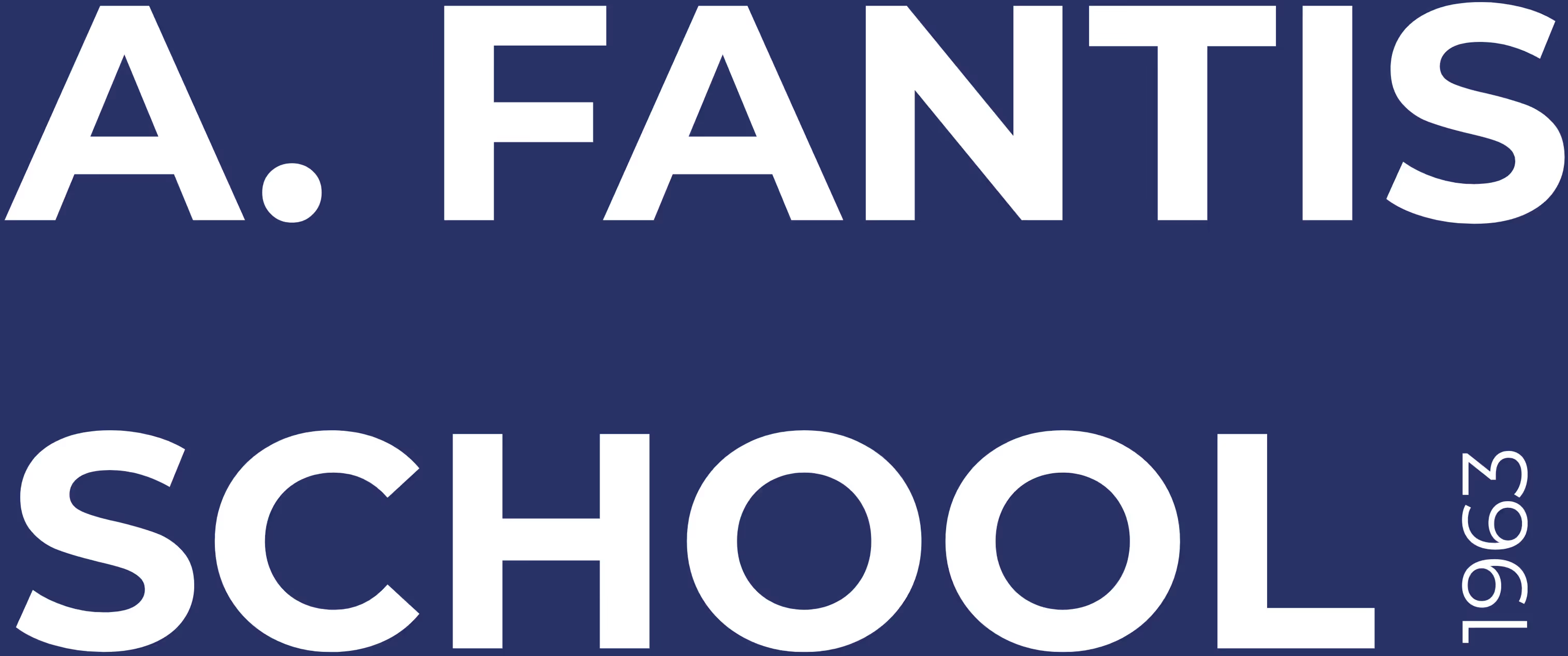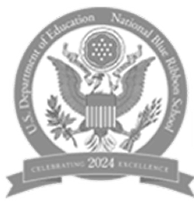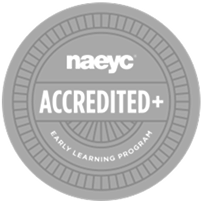.JPEG)

Elementary School
Top-rated Academics in the Heart of Brooklyn

Our Distinction:
Warmth and Energy: Our classrooms are vibrant hubs of learning, where every child feels at home while embarking on an academic journey.
From Play to Structured Learning: Starting in early childhood, we smoothly transition students from a world of imaginative play to one of structured, faith-based learning.
Empathy and Community: As our students flourish academically, they're also instilled with deep-rooted values, developing a strong sense of empathy and community bonding.
Where Excellence Meets Compassion:
Individual Attention: In our intimate setting, every student is cherished. We ensure that each child isn’t just a face in the crowd, but a unique individual with aspirations and dreams.
Academic Excellence: Our top-ranking speaks volumes. We offer a meticulously crafted curriculum that’s further enhanced by advanced group interactions, ensuring that our students receive nothing short of the best.
Holistic Growth: While academic prowess is our hallmark, we equally emphasize social, emotional, and physical development. From our morning circles that fortify bonds and life skills, to thrice-daily free play and regular physical education, we ensure our students are well-rounded in every sense.
By choosing A. Fantis Elementary School, you're not just choosing a school. You're opting for New York's finest – where every child's potential is recognized, nurtured, and celebrated.
The Fantis Difference








It is important for the students to trust their teachers. Students should feel important, loved, and safe in their environment. Learning should be a positive experience, you need to be serious about it, but it should also be fun and engaging for the students.

Elementary School Curriculum
English
Building a joyful reading culture is critical in elementary school, as children who love to read become adept readers. Classroom teachers act both as reading specialist and librarian, carefully curating libraries that will capture student interests. Indeed, the power of picture books can be used to teach basic story elements or enliven a discussion about segregation. A balanced literacy approach happens in early elementary grades. Time for direct instruction in spelling patterns, phonics and sight words is complemented with ample time for close reading and analysis of compelling literature in whole and small groups. As students transition to upper elementary, more time is dedicated towards in-depth novel studies, vocabulary and grammar. From kindergarten, students learn the craft of writing via units of study across all genres—a skill they use not only for expression but also knowledge acquisition. All units build progressively so that students are prepared for the rigors and challenges of Middle School English.
Social Studies
Inquiry remains at the heart of our social studies curriculum, which encompasses civics, geography and economics. Throughout elementary school, students learn to decipher and analyze compelling stories from all corners of our world. This begins with learning about local communities and global societies before a deeper dive into different US regions, history and geography. Students learn to use facts and details in order to compose deep and enduring understandings of key concepts and skills across disciplines. Classrooms energize with primary sources, hands-on projects, and compelling field trips. Civic engagement brings the curriculum to life in a course taught by our middle school history teacher starting in 3rd grade. Social Studies is a natural vehicle for integration of other core subjects—including English, Religion, and the Arts—and foundation for project-based learning.
Mathematics
Students at Fantis grow to appreciate the study of mathematics as a way of thinking and expression. Lessons are intentionally organized to leverage connections between concepts—progressing understanding to more sophisticated concepts. Early elementary focuses on building number sense, place value, and concepts, skills, and problem solving for addition and subtraction. They transition to concepts, skills, and problem solving for multiplication and division of whole numbers and fractions. Equally as important are mathematical practices—such as making sense of problems, perseverance, constructing viable arguments and critiquing the reasoning of others—which not only improve math but translate easily across disciplines. With our advanced curriculum, 5th graders can begin middle school math midyear, which will help them tackle advanced high school coursework by their senior year.
Science
“The art of teaching is the art of teaching to discover.”—Mark Van Doren
Firsthand exploration of phenomena through active investigations is at the heart of our science curriculum. Children are natural scientists and the curriculum must nurture this skill. The best way for students to achieve scientific literacy and appreciation is to actively participate in their own investigations and analyses. Students engage with real-world issues, empowering them to act as scientists and engineers to figure out the world around them. From plants and animals to living systems, the sequence of investigations builds an understanding of key concepts and practices in science and engineering. Starting in 3rd grade, students travel each week to the science lab for a course instructed by the middle school science teacher. Teachers facilitate the use of central texts, media, and other resources through reading, writing, integrated technology, museums, and outdoor exploration to further student understanding.
Greek Language, History & Philosophy
From Aesop’s Fables to Zeus, Fantis students explore classical antiquity in increasingly more sophisticated ways. In Kindergarten, the amount of daily Greek language instruction increases, as do the expectations and complexity of study. An early focus on speaking and listening fluency transitions to reading, writing and grammar. By the end of 4th grade, our students are able to reach Level A1 of the CEFR. This means they can understand and use familiar everyday expressions and phrases, with the ability to interact in a simple way.
Songs, dance and games still permeate instruction at this level, however. Students role-play stories and situations, as well as write letters to pen pals in Greece. Technology is critical in delivering instruction that is engaging and personalized. Interactive online programs, video and mixed media enliven study, as students can experience the same classical myth through text, video and interactive games.
Greek language is not an admissions requirement. In fact, many top performing students are not Greek. Students with no Greek language experience enrolling after kindergarten are provided individualized language tutoring before entering school.
Physical Education & Health
Physical development is a key component of Classical Greek Paideia, which focuses attention on developing children’s cognitive, social, emotional, and physical growth. We believe that educating the body is just as important as educating the mind—they cannot be separated. A. Fantis ensures students are active and healthy on a daily basis. In addition to three weekly physical education and health classes, students enjoy free play in our gymnasium or rooftop playground before and during school. After-school clubs let our students pursue sports individually and in teams, such as basketball, volleyball, and dance. Health and well-being topics are discussed in low-stress, cooperative environments. Our goal is to develop students’ appreciation of and commitment to personal health and fitness that lasts a lifetime.
Visual and Performing Arts
Dance, drama, and music play an important role in the Fantis experience. The importance of the arts have played a central role in education since Classical Greece and they are critical component in Paideia—a teaching philosophy focused on the whole child. All elementary students participate in weekly Choir and Music classes, which also explores history and theory. Electives include the ACC Choir, which performs at sites throughout the year, and private lessons after-school in piano, voice, and guitar. Students can continue their passion in middle school, with musical theater and drama electives. Arts education can push the boundaries of students’ thinking and inspire them to gain a deeper appreciation of the world around them.
Learning Support & Enrichment
“Differentiation is simply a teacher attending to the learning needs of a particular student or small groups of students, rather than teaching a class as though all individuals in it were basically alike.”—Carol Ann Tomlinson
With an average class size under 20 students, our faculty grow to understand each student as a unique individual. This understanding is further developed through the use of benchmark assessments given at key points during the year, which paint a detailed portrait of every student’s academic progress. In order to meet the demands of our advanced curriculum and hit rigorous grade level benchmarks, each teacher works within their department and in collaboration with our school counselor, special education coordinator and assistant principal. Over the school year, this team analyzes the results to create individualized support plans for students if they are below grade level or, more commonly, enrichment plans for students above grade level. We also support families with tools that will help students manage their learning independently. In partnership with families, our faculty and staff strive to ensure that each child achieves his/her fullest potential.
Social Emotional Learning
“Educating the mind without educating the heart is no education at all.” — Aristotle
Relationships are at the core of a successful learning community. A. Fantis students learn to foster warm and caring relationships staff, families and each other. This is possible under the guidance of our school counselor, who coordinates the implementation of our social-emotional learning (SEL) curriculum. Key components of this program include:
- Daily Morning Meeting
- Structured times to discuss topics ranging from showing gratitude, bullying, and preparing for a substitute teacher
- K-8 Classroom Buddy Program, where middle school students partner and mentor younger classmates every month
Students develop the skills and dispositions needed to interact positively and constructively with others by building caring relationships, direct instruction of social skills, and establishing a calm and positive learning environment.
Experiential Learning
“Research in education has shown that we remember field trips long into adulthood. I remember visiting the post office in second grade and looking at the sorting machine. I have vivid memories of that.”—Neil deGrasse Tyson
Classroom NYC is our commitment to ensuring that every student in every grade goes out to explore the world every month. The goal is to make school more meaningful and enriching by having students learn in more authentic environments. New York City offers a wealth of enriching, memorable experiences for students that will enhance their learning—from the Brooklyn Children’s Museum to the Metropolitan Museum. Another opportunity is our Cultural Exchange Program, which connects Fantis students with partner schools in Greece. This can include working on collaborative projects or establishing Pen Pals. There is indeed a fascinating world to explore outside these four walls, and it is our commitment to ensure our students take advantage of it.
Elementary School Life
Athletics
Classroom Economy
Classroom Buddies
Fantis Students



Meet Our Teachers

Jeannine Harris

Rylie Spencer

Kayla Sciota

Kateri Sanseviro

Thalia Fasarakis
Parent '11, '16

Kathy Noufrios
Parent '14, '16

Maria Birney
Fantis '76

Evangelos Chaziroglu

Theo Alvanos

Cait Henneberry

Merkourios Moschovis

Evie Dimitriadou

Krisanne Wint

Why learn Greek?



Ready to Apply?










